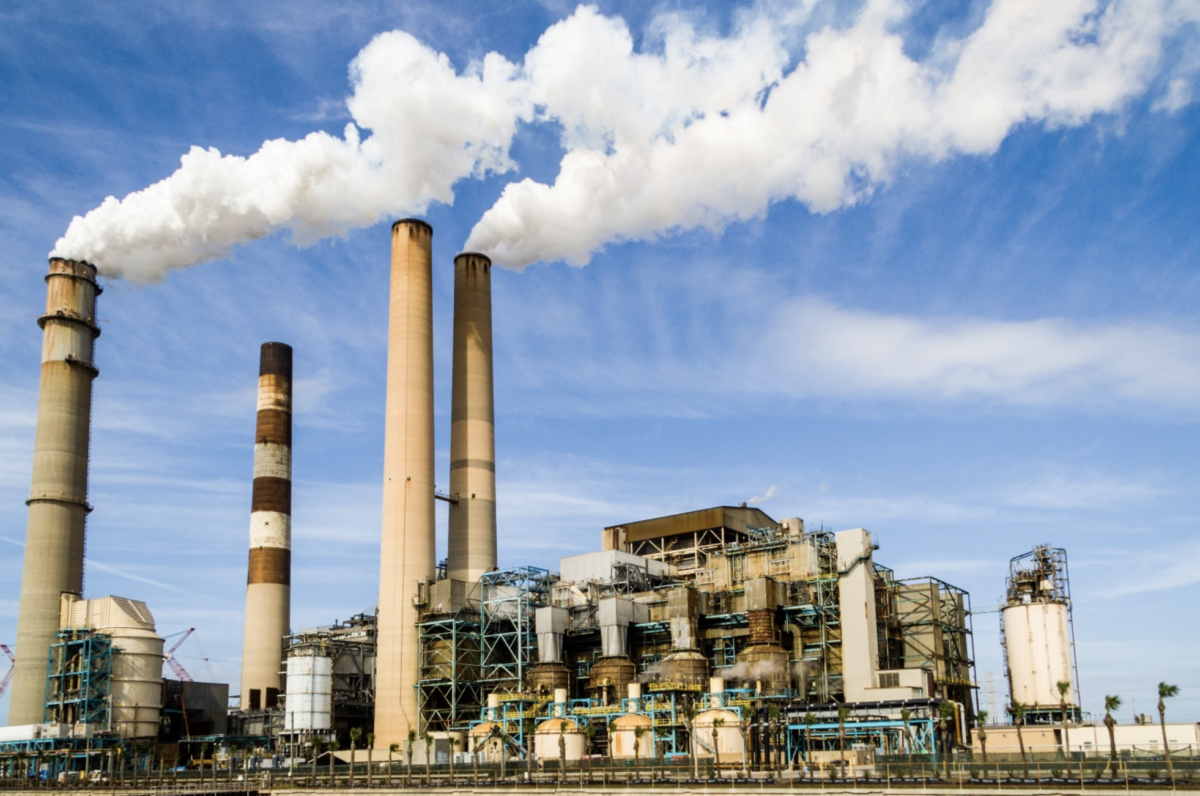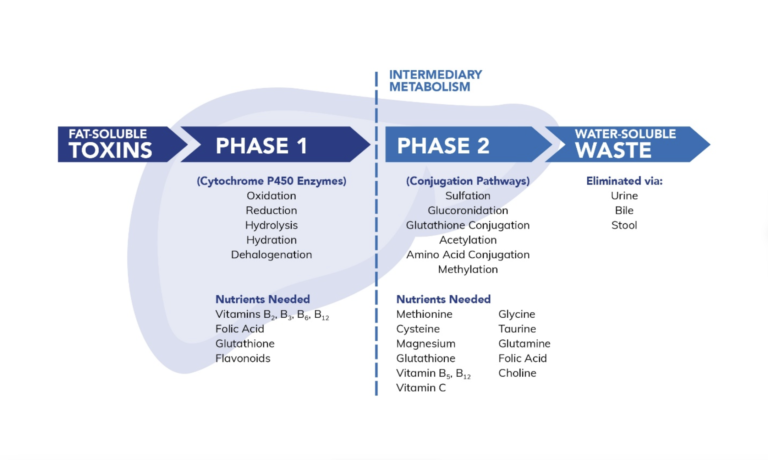People take supplements to improve or optimize their health. So what happens when you look at the label, and the ingredient list is filled with unrecognizable additives?

Every day we are exposed to environmental toxins without even knowing it.
Environmental toxins are all around us, and they come from a variety of sources. They are found in the food we eat, cosmetics and personal care products, building products, furniture, clothing, water, cleaning products, and so much more.
Some of the most common environmental toxins include:
- Forever chemicals. These are man-made chemicals that do not occur naturally in the environment. They are often used in manufacturing and industrial processes and can be found in various consumer products like food packaging, non-stick cookware, and stain-resistant fabrics. The term forever chemical refers to their persistence in our environment and bodies. Some examples of forever chemicals include perfluorinated compounds (PFCs), polychlorinated biphenyls (PCBs), and brominated flame retardants (BFRs).
- Endocrine disruptors. These are chemicals that can interfere with the normal functioning of your hormones and endocrine system. Endocrine disruptors include bisphenol A (BPA), phthalates, and dioxins. They are found in various consumer products like food cans, plastic containers, and cosmetics.
- Pesticides. These chemicals are used to kill pests and can be found in agriculture, home gardens, and public parks. Pesticides can also be found in non-organic foods and in household products like cleaning products and mosquito repellents.
- Volatile organic compounds (VOCs). VOCs are chemicals that easily become vapors or gases at room temperature. They are found in a variety of products like cleaners, paints, and adhesives. VOCs can also be released into the air from burning fossil fuels like gasoline and natural gas.
- Heavy metals. Heavy metals are elements that are naturally found in the environment. They can also come from industrial processes and consumer products. Heavy metals can build up in the body and cause health problems. Some common heavy metals include lead, mercury, cadmium, and arsenic. They are found in a variety of products like cosmetics, jewellery, toys, and paint. While in some cases, small amounts of exposure are considered safe, add them all up plus a lifetime of exposure, and you are likely exposed to much more than you realize.
How Does Detoxification Happen in Your Body?
Detoxification is the process by which your body eliminates toxins and waste products. It’s a complex process that involves many different organs and systems, including the liver, kidneys, gastrointestinal tract, lungs, and skin.
It occurs primarily in the liver in three phases:
- Phase 1 breaks down the toxin into water-soluble substances with the help of special enzymes. 5
- Phase 2 turns compounds from phase 1 into safer, non-reactive metabolites ready to be excreted from the body. This process happens with the help of several enzymes, including nuclear factor erythroid 2–related factor 2 (Nrf2). 5 Nrf2 regulates hundreds of genes related to detoxification and cellular health.
- Phase 3 transports the compound out of the body through the bile or urine. 5

Nutrients to Optimize Detoxification in Your Body
Your body is designed to eliminate these unwanted substances, but with the increasing number of toxins in the environment, ensuring your body has the proper nutrients for detoxification has become more important than ever.
Some nutrients help by upregulating enzymes that help with detoxification. Others help your liver function properly or bind to potentially toxic compounds to help excrete them from your body. 5
Broccoli Sprout Concentrate
Consumption of cruciferous veggies, including broccoli sprouts, supports healthy detoxification. Broccoli sprouts are significant sources of sulforaphane and DIM, two phytonutrients well studied for their health benefits and detox support. Broccoli sprout extract is also used in supplements.
Sulforaphane helps turn on phase 2 enzymes, including Nrf2, making it a key player in liver detox support. 8 It also may upregulate genes needed to express phase 2 enzymes.
One study found that broccoli sprout extract could help turn on phase 2 antioxidant enzyme expression based on a study in the upper airway of human subjects to support against oxidative stress.
In this study, participants were given a daily broccoli sprout extract or placebo supplement. Those given broccoli sprout extract measured a significant increase in antioxidant phase 2 enzymes in their airway cells.
In another study, a broccoli sprout extract beverage supported the detoxification of airborne toxins in Chinese subjects living in an area known for higher levels of air pollution. In this study, researchers measured elevated levels of excretion of airborne pollutants in the urine of those who supplemented with the broccoli sprout-enhanced beverage, meaning they were able to remove more of the toxins from the body.
Glutathione
Glutathione is often called the master antioxidant in your body because it’s so essential for protecting your cells against oxidative damage, DNA repair and synthesis, protein and enzyme synthesis, and more.
Antioxidants go hand-in-hand with detoxification because they help protect your cells and tissues against the damage caused by toxins and other harmful substances. Glutathione conjugation (where toxins are made inactive) happens in phase 2 detoxification.
But detoxification is also critical for glutathione production because Nrf2 is needed at healthy levels to produce glutathione. 12 Too little glutathione could affect the ability to transform reactive metabolites into safer products in phase 2, so maintaining healthy levels is essential. 12
While the body can make glutathione, supplementing with glutathione or glutathione precursors like N-Acetylcysteine (NAC) may benefit some people. In one study, supplementing with reduced glutathione effectively increased levels in the blood, red and white blood cells, and plasma.
Resveratrol
If you’ve ever heard that red wine benefits health, it’s primarily because it contains resveratrol from grapes. Resveratrol is a polyphenol (a type of phytonutrient that acts as an antioxidant) found in grapes, berries, and peanuts.
While you can find some in these foods and drinks, it’s not always easy to get enough from diet alone, so supplementation may be necessary. Resveratrol may help with phase 1 and 2 enzymes, including Nrf2.
Several studies have looked at the effects of resveratrol on detoxification in otherwise healthy people. One study found it could help protect against glutathione depletion and oxidative stress from cigarette smoke. Resveratrol could also help by supporting enzymes for detoxification, as seen in a study examining healthy subjects. 15

B-Vitamins
B vitamins are involved in so many different processes in the body, including energy production, and more. B vitamins are water-soluble, which means they’re not stored in the body and need to be replenished daily.
B vitamins are essential for detoxification because they act as cofactors, which means they’re needed for enzymes to function properly. 5 Enzymes are important for all chemical reactions in the body, including detoxification, so without B vitamins, detoxification may not work as efficiently as it should.
One way B vitamins, specifically riboflavin, help is to assist the production of glutathione. Riboflavin, or vitamin B2, is necessary for producing glutathione reductase, an enzyme that helps regenerate glutathione.
B vitamins also act as cofactors for the enzymes needed in both phase 1 and phase 2, and research suggests that less than optimal levels of B vitamins are linked to lower glutathione and oxidative stress.
Environmental Toxins are Everywhere, But You Can Limit Exposure
The nutrients needed for detoxification can be found in your diet and supported through supplementation.
You can’t control all the toxins in the environment, but you can control what you’re exposed to in your own home. Taking steps to reduce exposure, like avoiding certain chemicals in your home and being mindful of the products you use on your skin, can also help reduce your overall toxic load.
Additionally, diet and lifestyle choices play a role in how well your body can detoxify. Eating a nutrient-rich diet, exercising regularly, and managing stress can all help support optimal detoxification.
If you’re looking to support your detoxification pathways, consider working with a healthcare professional who can help you individualize your approach.
Caitlin Beale, MS, RDN is a registered dietitian and freelance health writer. She has a master’s degree in nutrition and over ten years of experience as a registered dietitian.
Available upon request.
Share:
Related Posts

Benefits of Creatine in Perimenopause and Menopause
Written by Maura MacDonald, MS, RD, CSSD | 2025 As we age, the notion is that we will inevitably become weaker. Not as mobile as

Goodbye Pie Chart, Hello Phase 1 Sliders
Written by Allison Smith, ND | 2025 As we usher in a new era of DUTCH testing which leaves behind the concept of the three-way

Introducing the DUTCH Dozen
Written by Kelly Ruef, ND | 2025 Hormone testing can be complex, which is why Precision Analytical developed the DUTCH Dozen, an interpretive framework that

DUTCH Report Enhancements
Written by Hilary Miller, ND | 2025 Precision Analytical have released the newest version of the DUTCH Test. This is the report’s most significant update

Gallbladder Health 101: What It Does and How to Keep It Working Well
Written by Ashley Palmer & Pooja Mahtani | 2025 The gallbladder may not get much attention compared to the gut, but it plays a central

